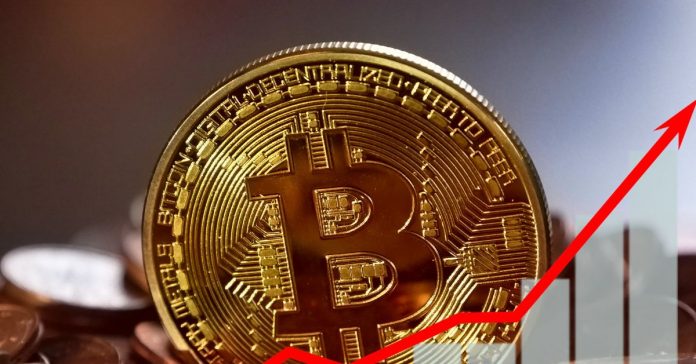In the ever-evolving world of cryptocurrency, the accessibility of acquiring assets like Bitcoin has become increasingly convenient. One popular method is purchasing Bitcoin with a debit card, offering a straightforward approach for enthusiasts and investors alike.
2. Understanding Bitcoin
What is Bitcoin?
Bitcoin, often referred to as digital gold, is a decentralized form of currency, allowing for peer-to-peer transactions without the need for intermediaries like banks.
How does Bitcoin work?
Operating on blockchain technology, Bitcoin transactions are secured and transparent, providing a reliable and efficient system for digital transactions.
3. Buying Bitcoin with a Debit Card
Advantages of using a debit card
The use of a debit card for Bitcoin transactions provides instant access to funds, making it a quick and convenient method for purchasing.
Considerations before buying with a debit card
Despite the ease, individuals must consider factors such as security, fees, and transaction limits before opting for debit card transactions.
You can check https://mycoinchange.co/.
4. Choosing a Platform
Popular platforms for buying Bitcoin
Several platforms facilitate the purchase of Bitcoin with a debit card, each offering unique features and interfaces.
Factors to consider when selecting a platform
Consider aspects like security measures, user experience, and available features when choosing the right platform for your Bitcoin transactions.
5. Steps to Buy Bitcoin with a Debit Card
Creating an account
Initiate the process by creating an account on your chosen platform, ensuring all required information is accurate.
Verifying your identity
Identity verification is crucial for security purposes, so be prepared to provide the necessary documentation.
Adding your debit card
Link your debit card to your account securely, following the platform’s guidelines for added protection.
Making the purchase
Execute the purchase by specifying the amount of Bitcoin you wish to buy and confirming the transaction.
6. Security Measures
Two-factor authentication
Enhance your account security by enabling two-factor authentication, an additional layer of protection against unauthorized access.
Storing Bitcoin securely
Consider utilizing hardware wallets or secure digital wallets for storing your Bitcoin, and safeguarding your investment.
7. Transaction Fees and Limits
Understanding fees
Different platforms may impose varying fees, so it’s crucial to comprehend the fee structure associated with your chosen platform.
Dealing with transaction limits
Be aware of transaction limits, as exceeding them may lead to additional verification steps or restrictions.
8. Risks and Challenges
Market volatility
Bitcoin’s value can be highly volatile, and users must be prepared for potential fluctuations in the market.
Fraud and scams
Stay vigilant to protect against fraudulent activities and scams prevalent in the cryptocurrency space.
9. Alternatives to Debit Card Purchases
Using other payment methods
Explore alternative payment methods, such as bank transfers or cryptocurrency exchanges that accept different forms of payment.
Bitcoin ATMs
Consider using Bitcoin ATMs for a more anonymous and decentralized approach to purchasing Bitcoin.
10. Tips for Safe Transactions
Regularly update security measures
Keep your security features up-to-date to protect against evolving threats in the cryptocurrency landscape.
Research thoroughly before transactions
Before engaging in transactions, conduct thorough research on platforms, fees, and security measures to make informed decisions.
11. Tracking Your Investment
Importance of monitoring your Bitcoin holdings
Regularly monitor your Bitcoin holdings to stay informed about market trends and make strategic decisions.
Utilizing tracking tools
Explore tracking tools and applications that help you keep a close eye on the performance of your Bitcoin investments.
12. Tax Implications
Understanding tax obligations
Familiarize yourself with the tax implications of Bitcoin transactions in your jurisdiction to comply with regulatory requirements.
Seeking professional advice
Consider seeking advice from tax professionals to ensure accurate reporting and compliance with tax regulations.
13. Future Trends in Bitcoin Transactions
Evolving payment methods
Stay informed about the evolving landscape of payment methods, as Bitcoin continues to integrate with traditional finance.
Integration with traditional finance
Explore the potential integration of Bitcoin into traditional financial systems, signaling new opportunities and challenges.
FAQs
Q1: Can I buy Bitcoin instantly with a debit card?
Yes, using a debit card often allows for instant Bitcoin purchases, providing quick access to the cryptocurrency.
Q2: Are there any limits on how much Bitcoin I can buy with a debit card?
Transaction limits vary between platforms, so it’s essential to check and be aware of the limits imposed by your chosen platform.
Q3: How can I secure my Bitcoin after purchase?
Consider using hardware wallets or secure digital wallets to store your Bitcoin securely, and enable two-factor authentication for added security.
Q4: What should I do in case of market volatility?
Stay informed about market trends, and consider setting strategic goals for your investments to navigate market volatility more effectively.
Q5: Are there tax implications when buying Bitcoin with a debit card?
Yes, there may be tax implications, and it’s crucial to understand and comply with tax regulations in your jurisdiction.
Conclusion
As the demand for Bitcoin grows, purchasing it with a debit card remains a viable option for many. By understanding the process, securing your transactions, and staying informed about market trends, you can navigate the world of Bitcoin investments with confidence.

